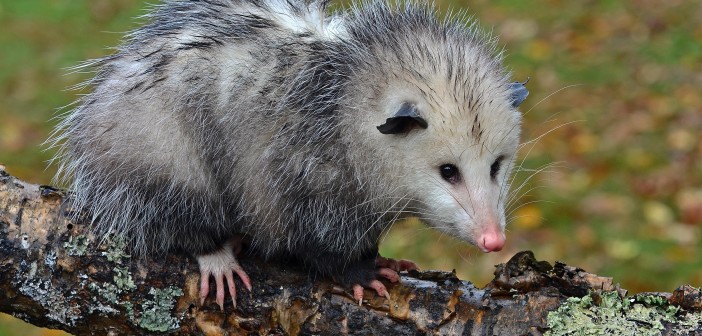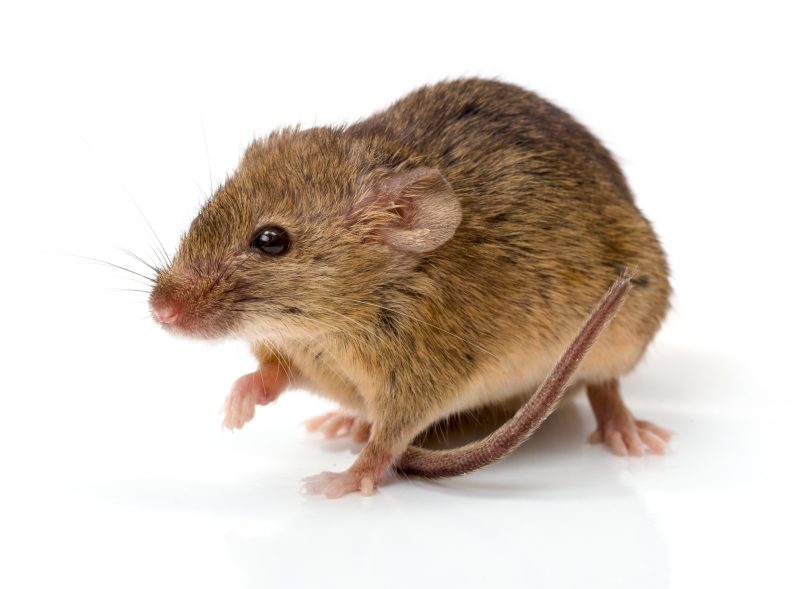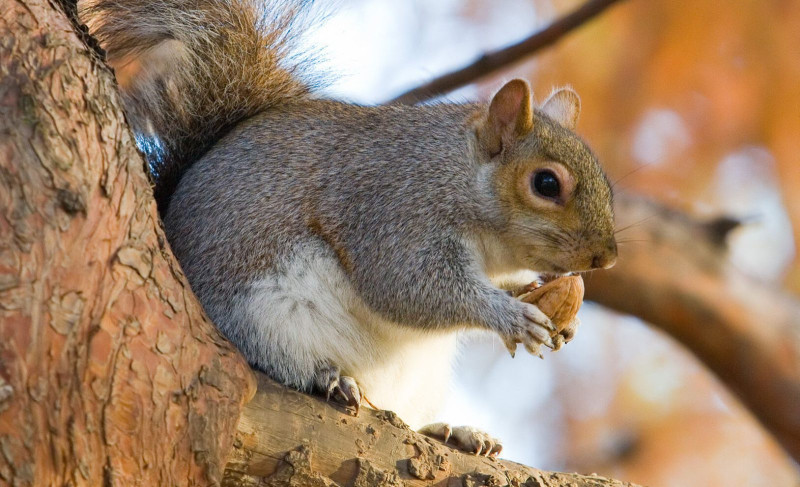Are opossums dangerous?
No, but they certainly look that way. If poked and prodded and forced to defend themselves, they’ll bite. But, otherwise, they’re non-aggressive, gentle, timid animals who want to be left alone. If you encounter one, just move away, or let it move away. Opossums may hiss and snarl and even drool like they’re rabid, but it’s a bluff. If they play dead, with mouth open and saliva seeping out, that’s a defense, too. They’re never rabid—their body temperature is too low for the rabies virus to survive. That said, should you get scratched or bitten, be sure to see a physician immediately. It’s best to play it safe by undergoing a series of rabies vaccinations. (The injections go into the upper arm and are no more painful than a flu shot.)
Why do opossums “play ‘possum?”
Opossums play dead to fool predators. Many predators lose interest in animals who don’t move. This doesn’t always work for the opossum, but, with some luck, the predator will depart and leave it intact. Scientists say opossums aren’t really “playing” at playing dead—it seems they fall into a comatose state induced by fear, an involuntary reaction.
Are opossums as dumb as they say?
“They” might be wrong. Opossums have a reputation for being dumb because of their slow movements and small brain size (five times smaller than a raccoon’s). Yet, owners of rescued opossums that can’t be released back into the wild will beg to differ. They proudly declare that opossums can be litter box and leash trained, love to be held and to snuggle, and greet them at the door when they return home. They also claim that opossums will come when their name is called.
Opossums and rabies
It’s extremely rare for an opossum to be rabid. In fact, opossums are the least likely of any wild animal to have a disease. Scientists say this may have to do with their body temperature, which is lower than most other mammals, making it difficult for viruses to survive.
If you see an opossum out in the daytime, it may be fleeing a predator. Or perhaps its den was destroyed. It may have been flushed from its den by pets or people. The most likely reason is that the opossum is a mother forced into the sunlight by hunger because of the extra nutritional requirements of feeding the babies in her pouch. If it’s winter, scarcity of food may force opossums to extend their search into the daytime (they don’t hibernate.)
Do opossums hang by their tail to sleep?
This is a common belief, but it isn’t true. Their tail is “prehensile,” meaning it’s muscular and can be used for grasping. It isn’t strong enough to support the weight of their body for long, however. Some authorities say opossums never hang by their tail, but some people have witnessed it for themselves.
How to keep opossums out of the yard
Why would you want to? They’re harmless and extremely beneficial. But, to answer the question, you can’t. Their claws and opposable thumbs enable them to climb just about anything. A fence won’t keep them out. If you trap and remove them, others will take their place.
The best way to discourage them is to remove attractants. Don’t leave leftover pet food outdoors. Pick up fallen fruit. Make sure there are no openings under porches and sheds for them to nest in.
Don’t fear them. They aren’t dangerous unless intentionally provoked. Even when they make a show of anger and fierceness, it’s for show. However, opossums are wild and, like all wild animals, will defend themselves, if necessary. Don’t try to touch.
Caring for a baby opossum
Most opossums are born between February and June. If you find a young one that’s the size of a small kitten (not counting his tail), it needs your help, even if it tries to get away. Look around to see if there are other babies nearby or even a dead mother. A young opossum will not voluntarily leave its mother until it’s the size of a kitten. Gently pick it up. Wear gloves. Don’t try to feed it—young ones require specialized diets, and very young ones require a feeding tube. They also can easily die from stress, so keep the baby warm and take it to a licensed wildlife rehabilitator.
You’ll probably never see an opossum in your yard during the daytime unless it’s a very young one that has fallen off its mother. Opossums are marsupials, and their young (between six and sixteen) live in pouches on Mom’s belly for about two months, after which they climb out and cling to her back for six weeks. Sometimes one will lose its grip and fall off. The poor thing will be left behind, with the mother unaware it’s gone.
Read all about the Virginia Opossum
Frequent questions about Northern Raccoons





